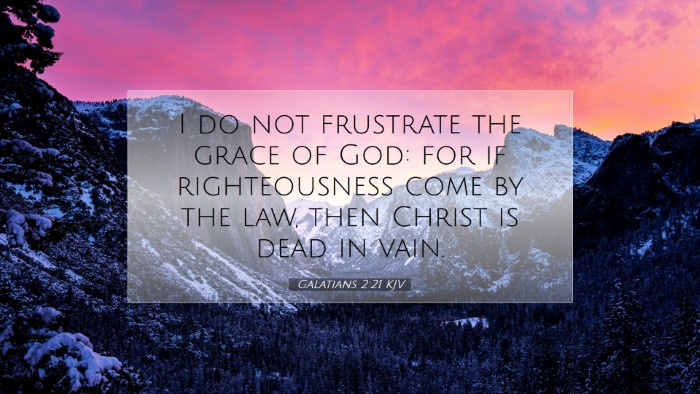Old Testament
Genesis Exodus Leviticus Numbers Deuteronomy Joshua Judges Ruth 1 Samuel 2 Samuel 1 Kings 2 Kings 1 Chronicles 2 Chronicles Ezra Nehemiah Esther Job Psalms Proverbs Ecclesiastes Song of Solomon Isaiah Jeremiah Lamentations Ezekiel Daniel Hosea Joel Amos Obadiah Jonah Micah Nahum Habakkuk Zephaniah Haggai Zechariah MalachiVerse
Galatians 2:1 Galatians 2:2 Galatians 2:3 Galatians 2:4 Galatians 2:5 Galatians 2:6 Galatians 2:7 Galatians 2:8 Galatians 2:9 Galatians 2:10 Galatians 2:11 Galatians 2:12 Galatians 2:13 Galatians 2:14 Galatians 2:15 Galatians 2:16 Galatians 2:17 Galatians 2:18 Galatians 2:19 Galatians 2:20 Galatians 2:21

